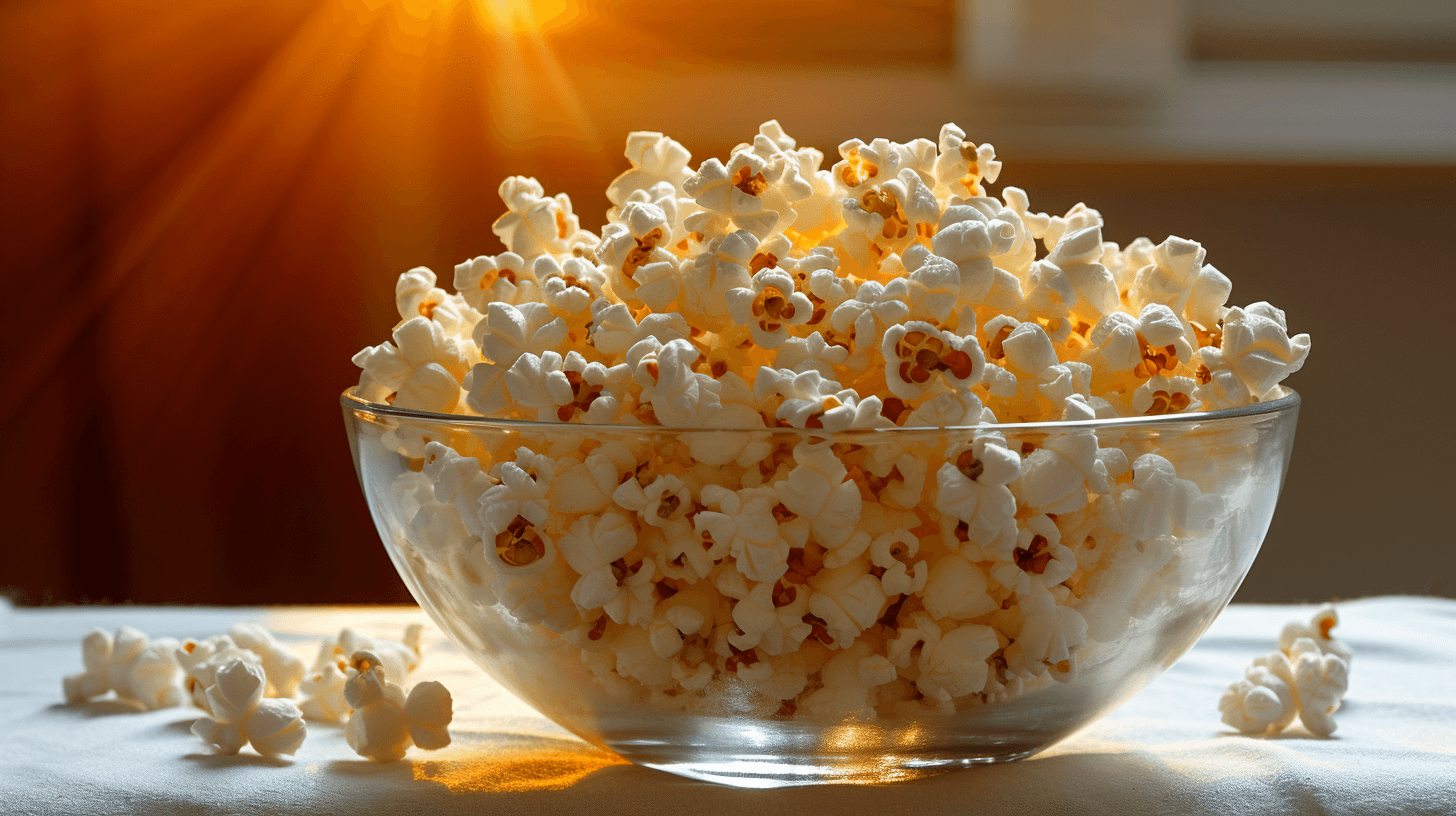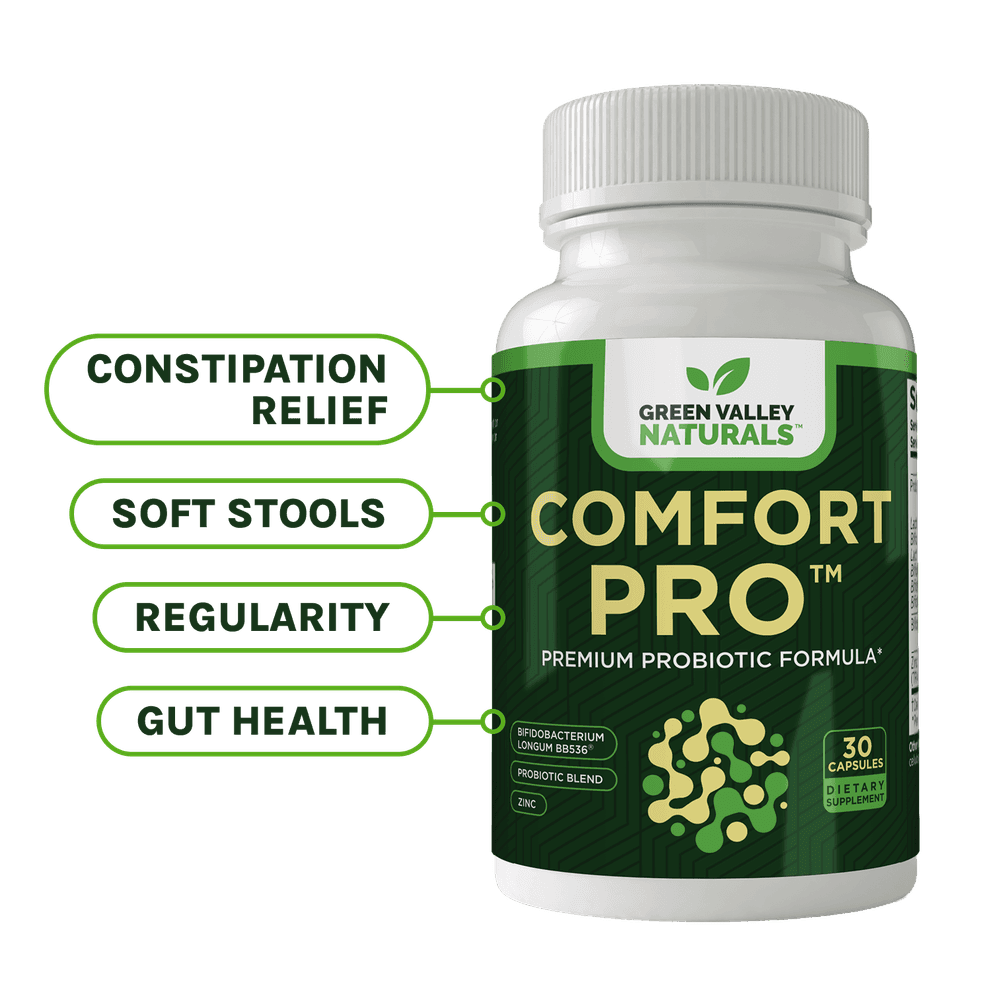
Popcorn is the iconic all-American movie night, TV, or get-together snack. Americans eat 17 billion quarts of popcorn each year—enough to fill the Empire State Building 18 times. Popcorn can also jump (pop) dramatically high—up to three feet in the air.
But not all popcorn, and indeed not all microwave popcorn, is created equal. Some microwave popcorns are loaded with unhealthy fats and artificial additives, which can pose health risks. Read on to discover how to find the healthiest microwave popcorn—or, for more control and greater economy, find out how to make homemade microwave popcorn or stovetop popcorn that meets healthy criteria.

Key Takeaways
Popcorn is one of Americans' favorite snacks. It can deliver on taste, nutrition, and satiety if it's prepared the right way—on the stovetop, in an air popper, or in the microwave.
Read labels and look for a short, recognizable, and pronounceable list of ingredients on any popcorn you buy. Or better yet, discover how to make your own using raw popcorn kernels. It's economical and healthy.
Popcorn: A Healthy Snack
In principle, popcorn could be the perfect fun, terrific-smelling, healthy and delicious snack. Popcorn is a great source of whole grains and fiber. It contains nutrients including polyphenol antioxidants, iron, magnesium, phosphorus, and several B vitamins. Plus, it's naturally gluten-free. It's a relatively inexpensive snack that can be relatively low in calories.
Without toppings, three cups of popped popcorn boasts only 95 calories and less than 1/4 gram of sugar.
But not all popcorn delivers on that promise. It all comes down to the way it's prepared or processed. For example, kettle corn can be high in saturated fat and sugar.
The healthiest microwave popcorn can be a good part of a healthy diet. And the wrong ones? They can magnify all your other health problems.
So perhaps a better question to ask is this: "Is MY Microwave Popcorn Good for Me?"
But in order to answer the question of whether microwave popcorn is a truly healthy snack, we need to first ask and answer several other questions...
- What type of popcorn?
- What chemicals and other ingredients are included?
- What is the sodium content?
- What kind of fat or oil (and how much) is used?
- What's in your popcorn packaging?

Does YOUR Microwave Popcorn Meet Healthy Standards?
Use this five-point checklist to determine how healthy your microwave popcorn really is.
1.) What Kind of Popcorn Is Used?
Corn is a dietary staple food for 1/3 of the human population. It's the most commonly grown crop in the U.S., and most of it is genetically modified (GM). While there are benefits to GM corn, such as increased yields and reduced need for chemical pesticides, the potential risks and uncertainties have led to a contentious debate.
First off, there's the allergy thing. Some people are concerned that messing with corn's genes might accidentally create new allergens or pump up existing ones. It's like they're worried we might turn corn into a sneaky troublemaker for allergy sufferers.
Then there's the fear of toxins. The worry here is that GM corn might start producing chemicals that are not so great for us or animals to eat.
Another big concern is antibiotics. Many GM crops are given genes that make them resistant to antibiotics. Some folks worry these genes might somehow jump ship to bad bacteria, making them harder to fight off when we get sick.
That's why the Non-GMO Project Standard recommends selecting non-GMO or organic corn products for your corn chips and popcorn brands.
2.) What Chemicals Are on The Label?
Several brands of microwave popcorn brands contain artificial ingredients and additives -- even food dyes (yikes!) including Red 40 Lake and Yellow 6 Lake, which have been linked to behavioral problems in children.
Another ingredient is TBHQ, Tert-butylhydroquinone, a preservative commonly used in certain processed foods, which doesn't mean it is safe. About 90 percent of Americans hit the daily upper limit of this food additive daily. People who eat the most processed foods and unhealthy fats are most likely to be listed as GRAS (generally considered safe), those upper limit "safe" levels. [1]
TBHQ is most likely found in processed fats and oils such as canola oil, conventional processed foods, fast food cooking oils, soft drinks, and more. TBHQ may be linked to cancer, food allergies, and neurological symptoms. The jury may still be out on how bad the risks are, but it may be wise not to invite trouble.
Some microwave popcorn brands even include sucralose (Splenda), one of the top artificial sweeteners used globally. Despite its zero-calorie claim, it is linked to diabetes and weight gain, Crohn's disease and leaky gut, and some studies link it to DNA damage, inflammation, and cancer. [2] Of special concern, some studies show that sucralose can degrade into toxic carcinogens when heated -- which certainly fits the bill for microwave popcorn.
And make no mistake, adding plain old sugar doesn't serve to make your microwave popcorn any healthier. Besides, you don't really need it.
More about chemicals in microwavable popcorn packaging in a moment.
3.) What About Sodium Content?
Another ingredient to evaluate is sodium. The American Heart Association recommends that you consume less than 2,300 mg of sodium per day from all sources. That's about 1 teaspoon. They suggest even less than 1,500 mg per day for "most adults," especially if you have hypertension.
Most microwave popcorn is quite high in sodium, putting it in the unhealthy category. For example, if you indulge in a large tub of movie popcorn, you'll consume a whopping 1,090 calories and 2,650 mg of sodium in one sitting. [3]
The FDA considers any popcorn with less than 5% of your daily value of sodium to be low, and anything above 20% as high. You'll want to be especially cautious if you eat a lot of fast food or processed foods, as they skew high in sodium.

4.) Are the Fats and Oils in Your Microwave Popcorn Healthy or Unhealthy?
So many things to think about where healthy fats and oils are concerned!
The American Heart Association recommends limiting saturated fat to 5% to 6% of your total daily calories. But there may be worse options than, say, real butter. At least you know what's in real butter... cream. You can't say that for all the microwave popcorn brands!
Take, for example, trans fats and hydrogenated oils. High consumption of these is linked to all sorts of chronic diseases, including diabetes, cancer, heart disease, and obesity. [4] If your microwave popcorn brand lists hydrogenated oils, it most certainly contains trans fats.
There aren't as many trans fats as there used to be before a ban on them took effect. But that doesn't mean they're not lurking in some foods due to labeling shenanigans.
Seed oils are common and may include sunflower, safflower, soybean, corn, peanut, and canola oil. Some people claim they're toxic and should be completely avoided, while others say they're okay in moderation.
The problem is that there is no moderation because they are everywhere. Some experts say they tilt the omega-3 to omega-6 ratio way out of whack. Instead of hovering at a historic 1:1 balance, some say our imbalance is now 20:1. With such an imbalance; your cells are highly prone to oxidation, which is pro-inflammatory. They can easily be degraded into toxic free radicals. Seed oils are often loaded with trans fats also.
So, to find the healthiest microwave popcorn, pay attention to its oils. The healthiest popcorn will use coconut oil, avocado oil, olive oil, and real butter (not butter flavor, which is made of who-knows-what).
Dangerous Chemicals Used in Microwave Popcorn Packaging
And then there are the chemicals used to line the bags' packaging. Yuck! They can do some serious damage! Have you ever heard about "popcorn lung"?
Perfluorinated Compounds (PFCs) and Perfluorooctanoic Acid (PFOA)
PFCs and PFOAs are from a class of widely used, long-lasting, Per- and polyfluoroalkyl substances (PFAS) used in various industrial and consumer products since the 1940s. They break down extremely slowly and thus persist in the environment for a long time -- hence their nickname, "forever chemicals."
These chemicals repel water and grease and are used in paper products that hold hot and/or greasy foods. Popcorn manufacturers typically include this chemical to ensure the bag stays intact after popping the popcorn.
Studies have linked high levels of PFAS have been linked to many health problems. According to the Centers for Disease Control (CDC), these include [5]:
- Higher cholesterol levels
- Higher blood pressure
- Increased risk of kidney and testicular cancer
- Decreased fertility in women
- Liver damage
- Increased risk of asthma
- Increased risk of thyroid disease
Some of the PFAS and PFOA were phased out between 2000 and 2015. However, to a large degree they've been replaced with other concerning chemicals. Some of those replacements have weaker chemical bonds and therefore break down more quickly than "forever chemicals". But the FDA says they continue to pose a concern for human health.
A large study of 10,000 people analyzed data about eating habits and collected blood samples. The researchers found that those who ate microwave popcorn daily had 63% higher levels of PFAS than normal. [6]
Diacetyl
Love that buttery popcorn taste? You might not like what it comes with! Diacetyl is a flavoring chemical used to give a buttery flavor to popcorn.
In the early 2000s, employees of a popcorn factory in Missouri started getting sick. One employee was told he'd need a double lung transplant. A suspiciously large number of his colleagues at the factory were also diagnosed with the same issue.
When bags of microwave popcorn are heated, they emit ultra-fine particles that can cause lung inflammation and scarring—hence the nickname "popcorn lung." The disease—officially called bronchiolitis obliterans—can be deadly. Even though diacetyl is considered safe to eat, it can cause permanent damage to the bronchioles in your lungs.
Due to bad publicity and the threat of lawsuits, diacetyl use in microwave popcorn plummeted after about 2007. However, using it in food production is still legal, although it would be hidden within "natural flavorings" or "artificial flavorings" on the label.
Choosing the Best Microwave Popcorn
The history of microwave popcorn, from its inception in the 1980s to today, is littered with sketchy and toxic ingredients linked to cancer and a number of other health conditions. As always, it pays to read labels.
Still, labels don't tell the whole story, considering that individual ingredients can be grouped together under the umbrella of "natural flavorings." And there's nothing "natural" about them or their health effects.
Buying Store-Bought Microwave Popcorn Brands
Partly due to public demand, more healthy microwave popcorn brands are available now than a decade ago.
Look for brands with four or fewer ingredients, real butter or another healthy fat, no "flavorings," and low salt. Think about the popcorn you make at home... how many ingredients are needed to make tasty popcorn? Not very many, right?
If you're using microwave popcorn from the store, here's a quick checklist to protect yourself:
- Wait for the bag to cool after popping. Reduces exposure to toxic fumes.
- Use an exhaust fan to minimize exposure to chemicals when opening the bag.
- And of course, consider making your own!
The reality is that the healthiest microwave popcorn is the homemade kind.

Making Your Own Homemade Microwave Popcorn
Making your own healthy microwave popcorn is downright simple, and as a bonus, it's more affordable.
A high-quality 3# organic bag of popcorn that goes for $17.49 makes 34 servings of 7-1/2 cups each (generous). This means each serving size costs a mere $.51. Compare that to some of the healthiest microwave popcorn brands that charge $3 to $5 per single bag.
Here's how you do it...
Just grab a paper lunch bag, add 1/4 cup of unpopped popcorn kernels in the bag, fold the top of the bag down 2 to 3 times, and microwave on high for about two minutes or until a few seconds elapse between pops.
Pour into a bowl and add a healthy oil such as olive oil, coconut oil, butter, and a little bit of salt- or even better, your favorite spices or herbs. Suggestions include chili powder, garlic powder, cumin, cayenne, cinnamon, nutmeg, paprika, or nutritional yeast.
Other Healthy Homemade Popcorn Choices
No paper bags, and you want popcorn tonight? No problem! Two other options:

Stovetop method of popping popcorn
Pull out a pan and add 3 tablespoons of coconut oil or avocado oil (preferred for its high smoke point). Let it heat up. Drop a couple of popcorn kernels into the pan and wait for them to pop. Once they do, add 1/3 cup of organic popcorn kernels evenly to the bottom of the pan.
Turn the heat down, put a lid on, and shake the pan as the popcorn kernels start popping. Have a bowl ready, as the popcorn kernels will pop up quickly. Pour into a bowl. Melt one or more tablespoons of butter in the hot pan and drizzle over the popped popcorn. This method pops nearly every kernel evenly. If you have a sweet tooth, you can even make your own homemade kettle corn that's healthier than the store-bought or festival versions.
Air-popped popcorn
Today, there are many choices in air poppers for popping healthy popcorn, so you can skip packaged popcorn brands that are expensive and can harm your health.
Usually, an air popper is a separate small appliance. Some of them are so small that they can be kept on the shelf, although if you only use it occasionally, you might want to stash it in a cabinet.
An air popper does not use any oil, which is perfect if you're trying to limit fats and oils in your diet (although a case can be made that healthy oils are actually, ahem, healthy).
Summary
Microwave popcorn is a beloved snack, but not all options are healthy. Many brands contain unhealthy fats, artificial additives, high sodium, and chemicals like TBHQ and sucralose, which can pose health risks. Moreover, the packaging often includes harmful substances like PFAS and diacetyl, which have been linked to serious health issues. For a healthier alternative, looking for microwave popcorn with minimal, recognizable ingredients is recommended or making your own at home using raw popcorn kernels. Homemade popcorn can be prepared easily in a microwave, on the stovetop, or with an air popper, using healthier oils and spices for flavor.
Frequently Asked Questions
What is the healthiest microwave popcorn?
The healthiest and most economical microwave popcorn is the popcorn you make at home. You can make your homemade microwave popcorn in a brown lunch bag with just three tablespoons of popcorn kernels, rolling down the top of the bag and microwaving it about two minutes.
How to choose "healthy" microwave popcorn?
The healthiest popcorn brands will have a very short list of ingredients that you recognize and can pronounce, such as organic popcorn, real butter, and Himalayan salt. When you cut the bad actors such as natural butter flavor (get the real thing instead!) from the equation, you get a healthy, potentially low-calorie, whole-grain snack complete with polyphenols, B vitamins, and other nutrients. But the reality is, the best choice is to make your own-- which is simple to do in the microwave (see instructions above), on the stovetop, or with an air popper. Now you don't need to find healthy popcorn brands for the microwave. Just get organic popcorn and use healthy ingredients you have at home!
Is microwave popcorn bad for your cholesterol?
Microwave popcorn may be bad for your cholesterol if it's loaded up with ingredients that make your cholesterol spike. This might include some of the chemicals that are often part of the packaging, or a high level of saturated fat. Still, real butter is arguably better (in moderation) than butter flavor with suspicious health-jeopardizing ingredients.
Can popped microwave popcorn be frozen for later use?
Yes, freezing popcorn will keep it fresh for three months or more. It makes it last longer, stay fresher, and not get stale. No more need to throw away 2-day-old popped popcorn.
- https://www.inchem.org/documents/jecfa/jecmono/v042je26.htm
- Radcliffe, Shawn. (2023, June 13) Sucralose, A Common Artificial Sweetener, May Increase Cancer Risk. https://www.healthline.com/health-news/sucralose-a-common-artificial-sweetener-may-increase-cancer-risk
- American Heart Association. Popcorn as a Snack: Healthy Hit or Dietary Horror Show? https://www.heart.org/en/news/2019/06/18/popcorn-as-a-snack-healthy-hit-or-dietary-horror-show
- Nagpal T, Sahu JK, Khare SK, Bashir K, Jan K. Trans fatty acids in food: A review on dietary intake, health impact, regulations and alternatives. J Food Sci. 2021 Dec;86(12):5159-5174. doi: 10.1111/1750-3841.15977. Epub 2021 Nov 23. PMID: 34812504. https://pubmed.ncbi.nlm.nih.gov/34812504/
- Agency for Toxic Substances and Disease Registry. What are the health affects of PFAS? https://www.atsdr.cdc.gov/pfas/health-effects/index.html
- UCLA Health. (2022, August 5). Eating Microwave Popcorn Increases the Level of PFAS in Body. https://www.uclahealth.org/news/article/eating-microwave-popcorn-increases-the-level-of-pfas-in-body

